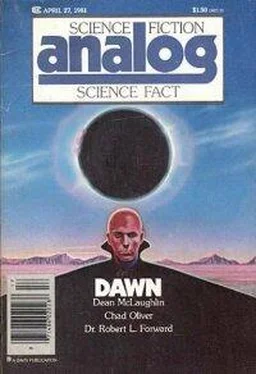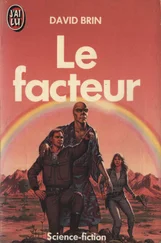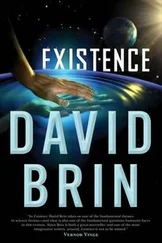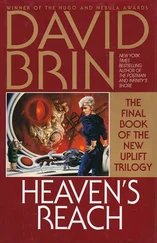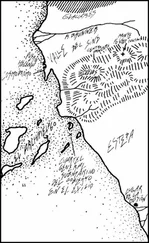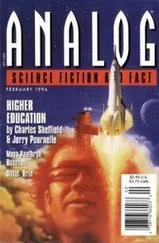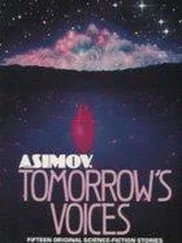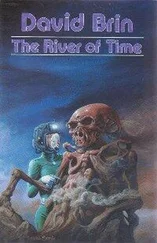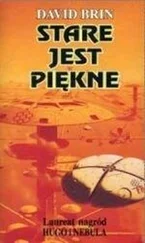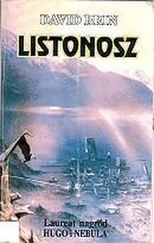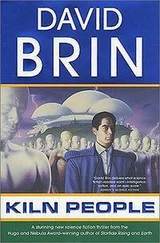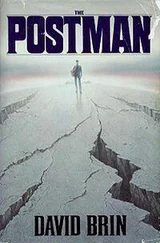David Brin - Just a Hint
Здесь есть возможность читать онлайн «David Brin - Just a Hint» весь текст электронной книги совершенно бесплатно (целиком полную версию без сокращений). В некоторых случаях можно слушать аудио, скачать через торрент в формате fb2 и присутствует краткое содержание. Год выпуска: 1981, Издательство: Davis Publications, Inc., Жанр: Фантастика и фэнтези, на английском языке. Описание произведения, (предисловие) а так же отзывы посетителей доступны на портале библиотеки ЛибКат.
- Название:Just a Hint
- Автор:
- Издательство:Davis Publications, Inc.
- Жанр:
- Год:1981
- ISBN:нет данных
- Рейтинг книги:3 / 5. Голосов: 1
-
Избранное:Добавить в избранное
- Отзывы:
-
Ваша оценка:
- 60
- 1
- 2
- 3
- 4
- 5
Just a Hint: краткое содержание, описание и аннотация
Предлагаем к чтению аннотацию, описание, краткое содержание или предисловие (зависит от того, что написал сам автор книги «Just a Hint»). Если вы не нашли необходимую информацию о книге — напишите в комментариях, мы постараемся отыскать её.
Just a Hint — читать онлайн бесплатно полную книгу (весь текст) целиком
Ниже представлен текст книги, разбитый по страницам. Система сохранения места последней прочитанной страницы, позволяет с удобством читать онлайн бесплатно книгу «Just a Hint», без необходимости каждый раз заново искать на чём Вы остановились. Поставьте закладку, и сможете в любой момент перейти на страницу, на которой закончили чтение.
Интервал:
Закладка:
She tapped the newspaper.
“But this isn’t as easy as that. Our problem of world survival is made up of several hundred million tiny problems, each with all the complexity of a living person. There’s no underlying simplicity to war and politics, much as Marxists and others dream of finding one. They only make matters worse with simplistic claims and pseudologic.”
Federman sat up straight and rested both palms on the desk. He looked at Liz seriously.
“The idea is that we may have missed something basic .”
He stood up quickly, and instantly regretted it as his heart pounded to make up for the shift in blood pressure. For a moment, the room lost its focus.
Deliberately, to keep Liz from becoming concerned, he picked his way around the clutter of books and charts on the floor and rested his shoulder against the window frame.
Brisk, cool spring morning air flooded in, carrying away the stale odors of the night. There was the sweet, heavy smell of new-mown grass.
On its way to him the breeze toyed with the branches of aspen and oak trees and the waving wheatfields in the valley several miles away. A low pride of cumulus clouds drifted overhead, cleanly white.
In the distance he could see a gleaming Rapitrans pull into the station at the local industrial park. Tiny specks that were commuters wandered away from the train and slowly dispersed into the decorously concealed factories that blended into the hills and greenery.
It was, indeed, a beautiful day.
Birds were singing. A pair flew right past his window. He followed them with his eyes until he saw that they were building a nest in the skeleton of what was to have been the new hundred-meter radio telescope.
There was a rumbling in the sky. Above the high bank of clouds a formation of military transports made a brief glint of martial migration. The faint growling of their passage had become an almost daily occurrence.
Federman turned away from the window. Inside, except where the brilliant shaft of light fell, there appeared to be only dimness. He spoke in the general direction of his friend and student.
“I was only thinking that maybe we’ve been missing the forest for the trees. It might be something so simple… something another culture with a different perspective might…”
“Might what, Sam?” Liz’s voice had an edge to it. “If there ever were peaceful cultures on Earth, they didn’t have the other half of the solution—a way to keep from getting clobbered by the other guy who isn’t peaceful! If they did have that answer too, where are they now?”
“Look at the world! Western, Asian, African, it makes no difference which culture you look at. They’re all arming as fast as they can. Brushfire wars break out everywhere, and every month the Big Blow doesn’t happen makes worse the day when it does!”
Federman shrugged and turned to look out the window again.
“Maybe you’re right. I suppose I’m just wishing for a deus ex machine .” His eyes lovingly coveted the abandoned, unfinished dish outside.
“Still, we’ve done so well otherwise,” he went on. “The simple problems with obvious answers are all being solved. Look at how well we’ve managed to clean up the environment, since people found out about the cancer-causing effects of pollution in the seventies and eighties. Sure, there was inertia. But once the solution became obvious we went ahead and did the logical thing to save our lives.”
“I can’t escape the feeling, though, that there’s a similar breakthrough to be made in the field of human conflict… that there’s some obvious way to assure freedom and dignity and diversity of viewpoint without going to war. Sometimes I think it’s just sitting there, waiting to be discovered, if only we had just a hint.”
Liz was silent for a moment. When she spoke again it was from the other edge of the window. She too was looking out at the spring morning, and at the armed convoy in the sky.
“Yes,” she said softly. “It would be nice. But to be serious, Sam, do you really think you could get any more funding than you’ve already got, to do your spare-time search for radio messages from space? And even if you were successful, do you think the Big Blow would wait long enough for us to decipher a message, then send one of our own , and eventually ask complex questions on sociology?”
She shook her head. “Would they be similar enough to us to understand what we’d be asking? Do you really think we’re missing something so fundamentally simple that just a hint over the light-years would make that much difference?”
Federman shrugged. His gaze remained fixed on the skeleton in the yard.
The scientist with no nose looked out over his city. For a long time he had fretted and fumed beneath the great dish antenna; then he had gone for a walk around the edge of the research center compound.
Years ago these hills had been suburbs. Now factories belched smoke into the air on all sides. The sight cheered him slightly. He could never look at such an obvious sign of progress and prosperity for long and stay in a black mood.
There were so many other things to be proud of, too.
After the invention of atomic weapons, before he was born, his parents’ generation had finally found the motivation to do the obvious and abolish war. The method had been there all along, but no one had been sufficiently motivated before. Now the fruits of peace were multiplying throughout the world.
Two automobiles for everyone! Fast, efficient stratospheric transport! Quick-foods easily dispensed from fluorocarbon-driven aerosol cans! The licentious luxury of lead-lined dinnerware!
All of this was good. Peace and prosperity.
But the Plague had then come among them, soon after the last war, and now affected almost everyone. Lung ailments, skin cancer… that horrible sickness that struck the mercury and bismuth mines… the death of the fisheries.
Huge sums were spent to find the microorganisms responsible for this rash of diseases. Some were found, but no germs yet that could account for the wide range of calamities. Some scientists were now suggesting a pathogen smaller than a virus.
Fetham looked up. Gathu. The government representative had followed him outside.
“I am sorry I shouted,” Fetham said slowly. The other being-with-no-nose did the equivalent, for his species, of a forgiving nod. Fetham gave a handturn of thanks.
“It’s just that I was hoping the Others might know something… something that would help us understand.”
Gathu was sympathetic.
“I know, Academician. But honestly, what could they tell us about our problems—especially biological problems—even if you did succeed in making contact?”
“If they exist at all, they live on a completely different world, with different body chemistry. How could they give us knowledge that would help us defeat this Plague?”
Fetham performed a gesture that conveyed the meaning of a shrug. His large and very subtle ears filtered out the brash, ever-present noise of traffic, yet allowed him to hear the whistling of the wind through the silted, murky sky.
Suddenly he had a totally irrelevant thought.
I wonder where the birds are? They used to be all over this part of the city. I never noticed that they had gone, until now .
“ I suppose,” he sighed. “I suppose I was hoping for just a hint…”
AUTHOR’S NOTES
This part of the collection, called Speculation, features three stories of the “what if” type, where the emphasis is less on plot or characterization or a literary style than on the idea itself. Science fiction is noted for such stories. Fortunately, though, they are not all there is to SF .
Читать дальшеИнтервал:
Закладка:
Похожие книги на «Just a Hint»
Представляем Вашему вниманию похожие книги на «Just a Hint» списком для выбора. Мы отобрали схожую по названию и смыслу литературу в надежде предоставить читателям больше вариантов отыскать новые, интересные, ещё непрочитанные произведения.
Обсуждение, отзывы о книге «Just a Hint» и просто собственные мнения читателей. Оставьте ваши комментарии, напишите, что Вы думаете о произведении, его смысле или главных героях. Укажите что конкретно понравилось, а что нет, и почему Вы так считаете.
